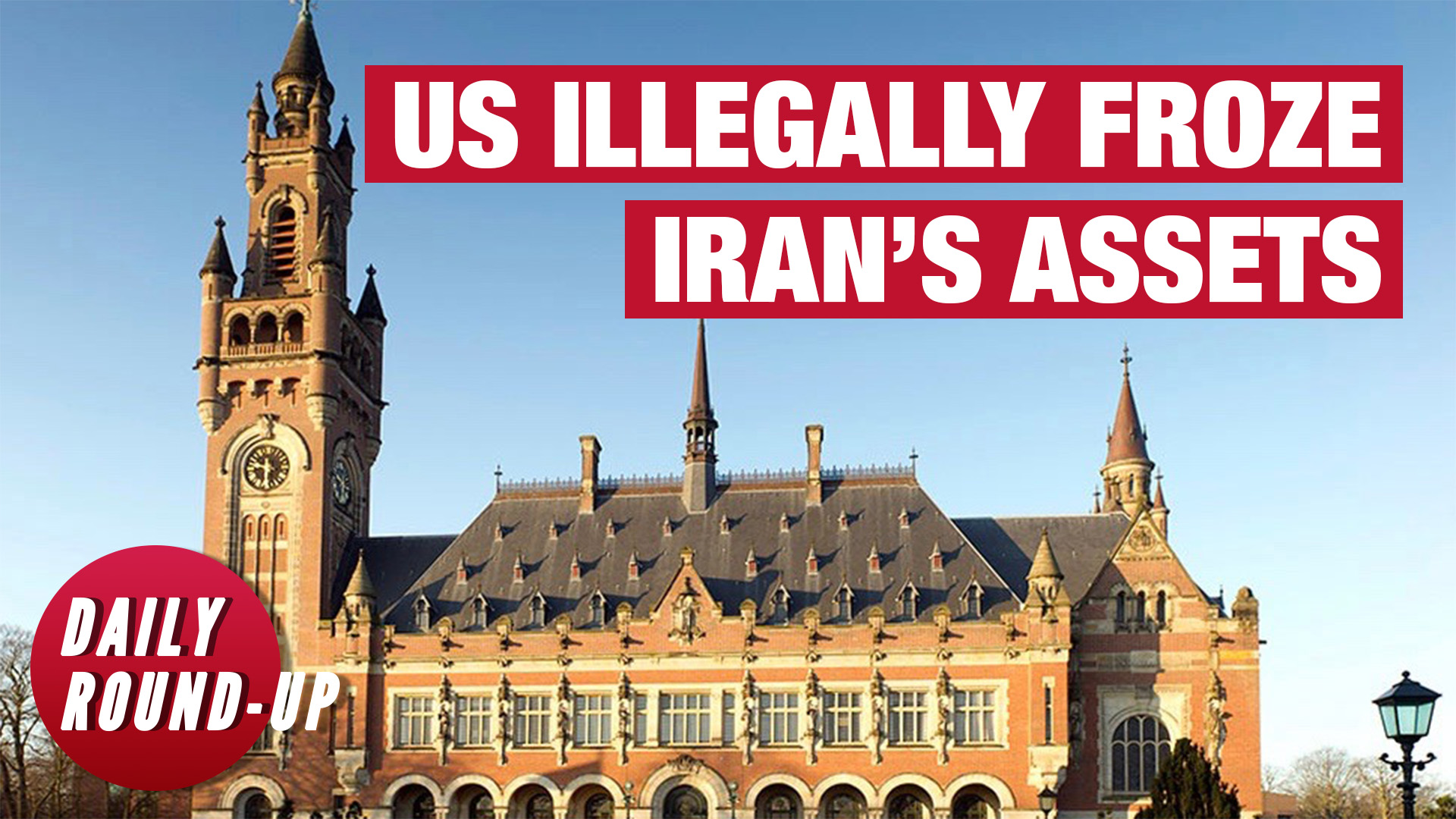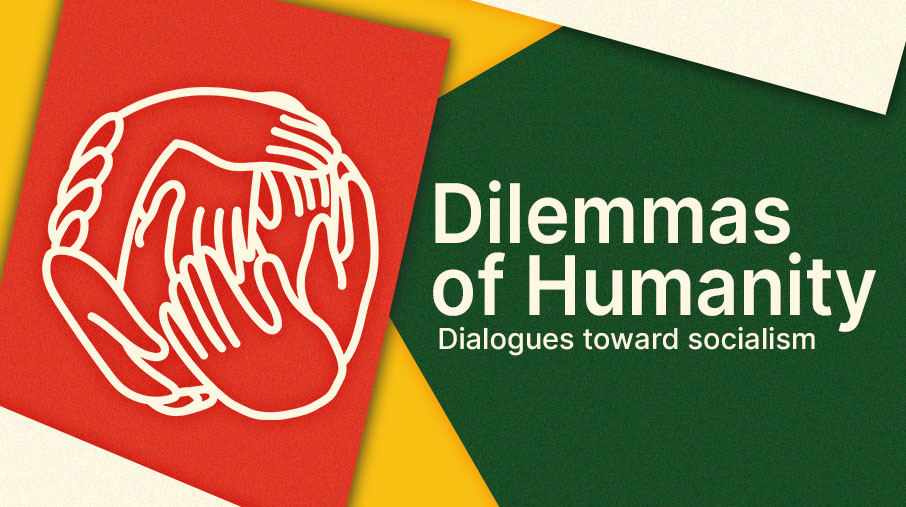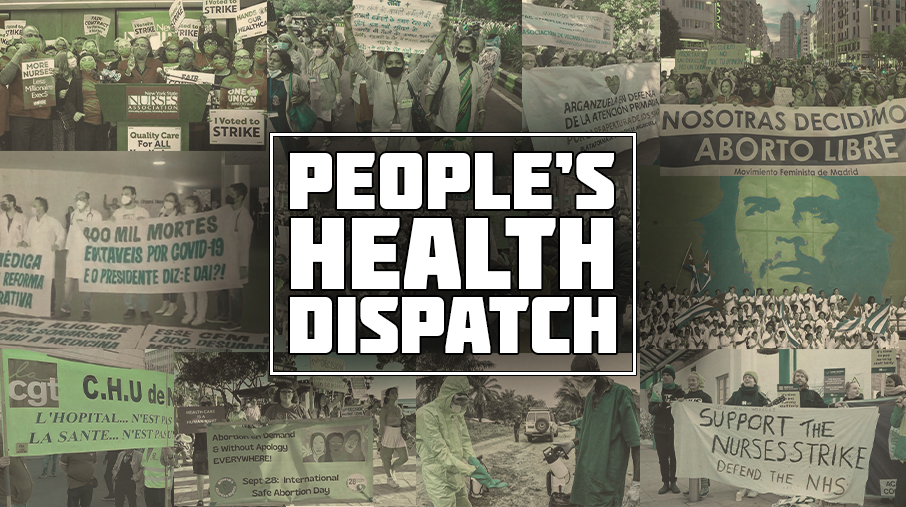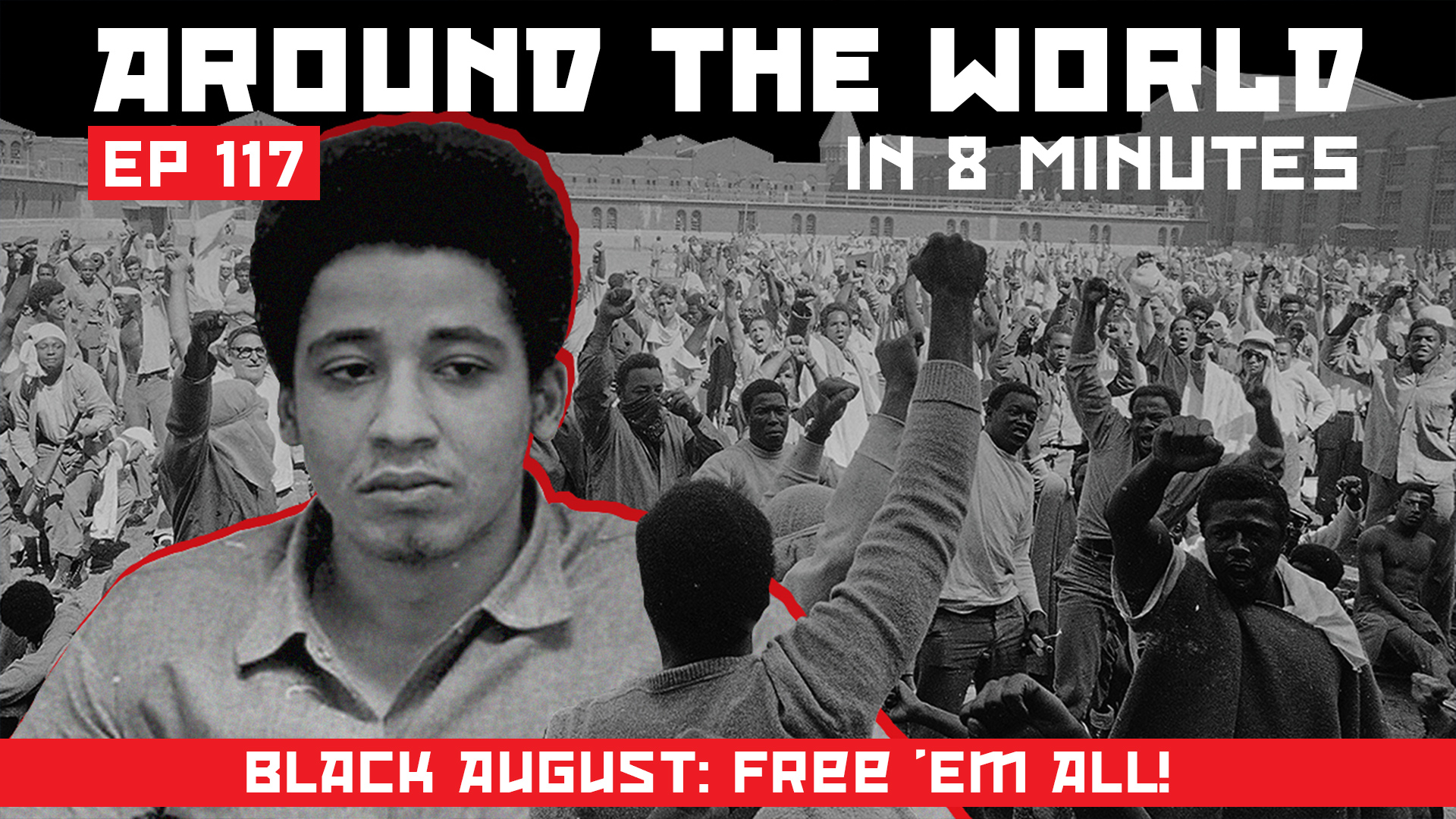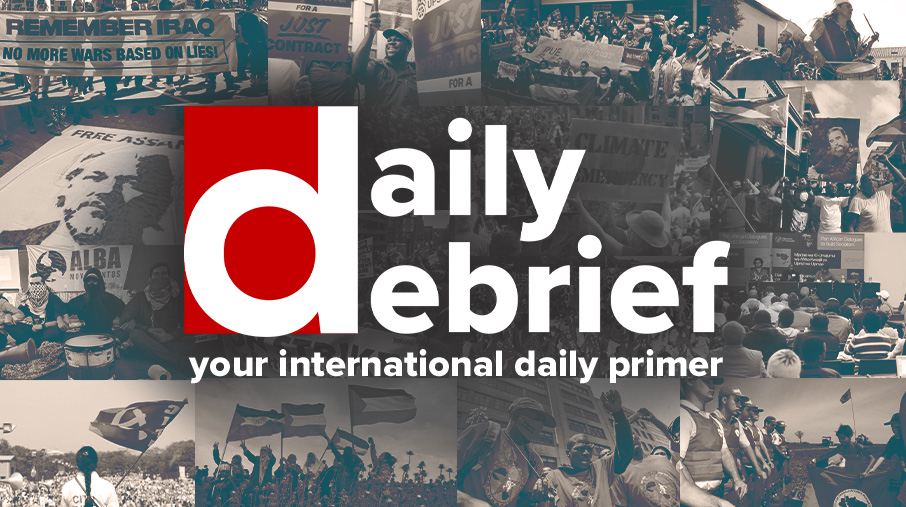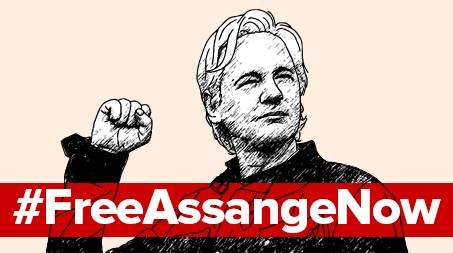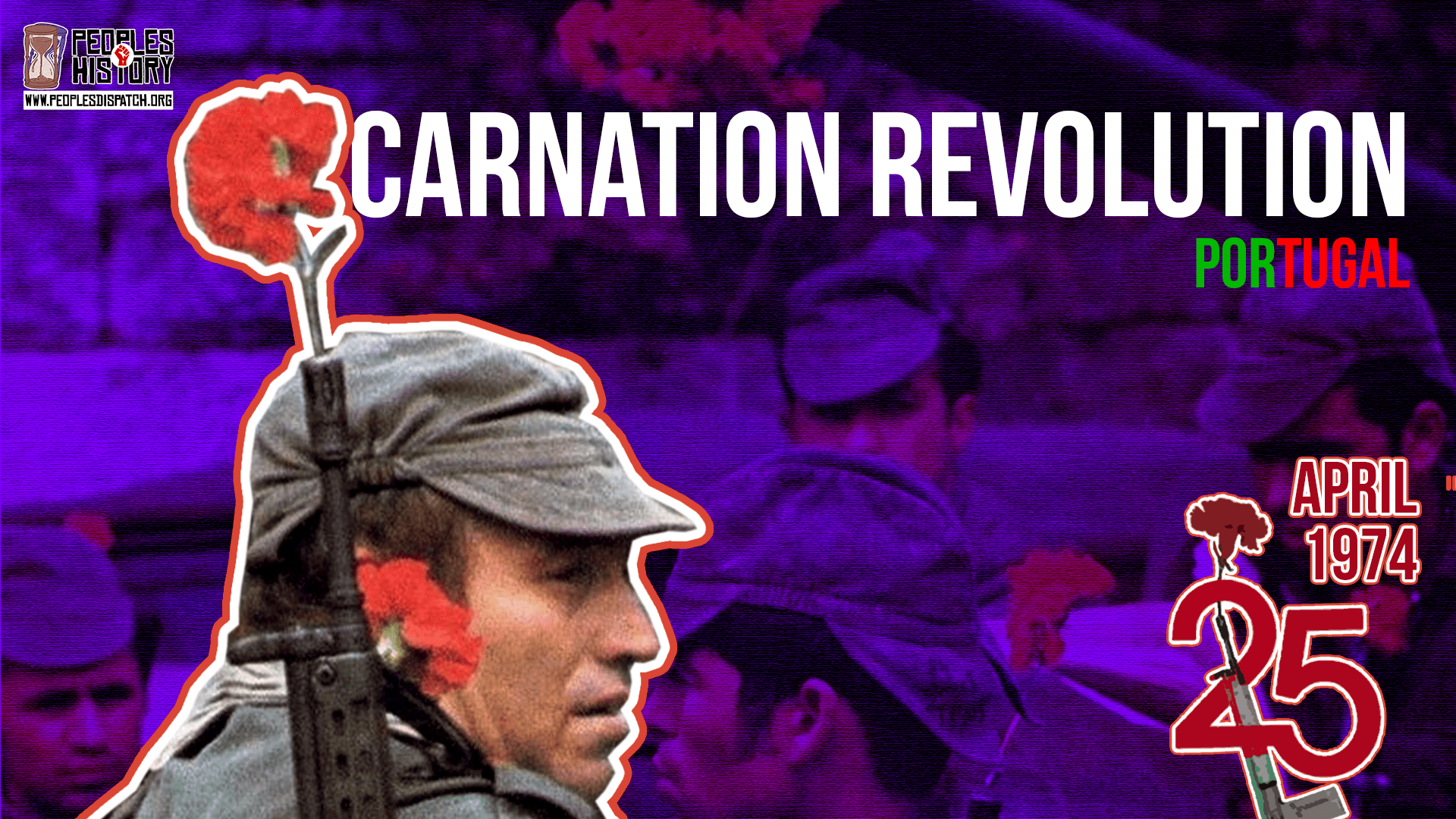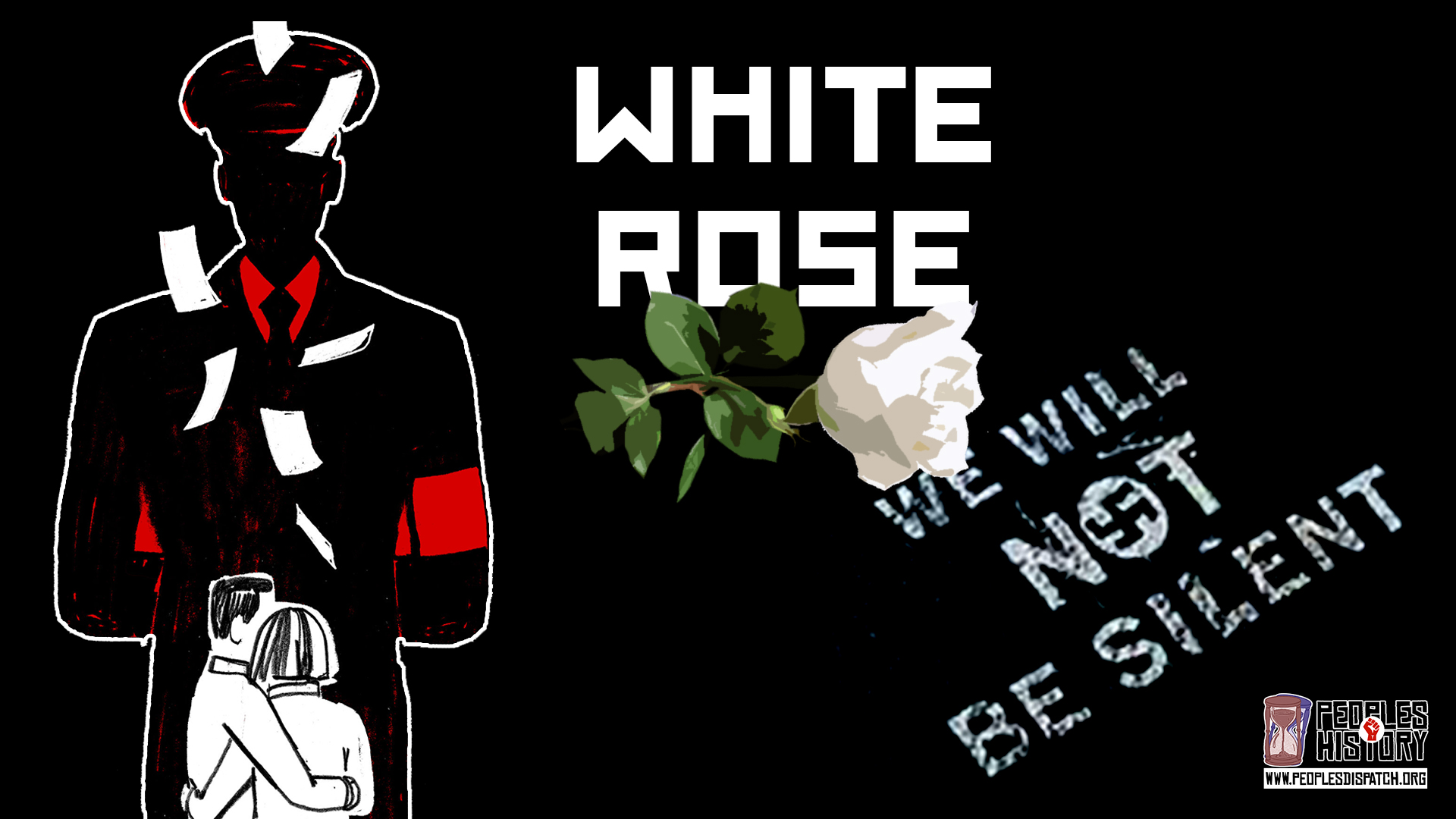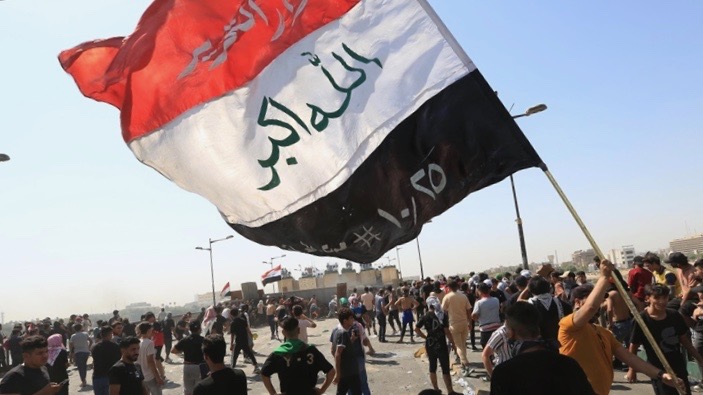 Three years since 2019 protests in Iraq, most demands remain unfulfilled
Three years since 2019 protests in Iraq, most demands remain unfulfilled
Three years after a wave of protests rocked Iraq, not much has changed with respect to the structure of the economy or political system. A new government is finally in place but faces numerous challenges
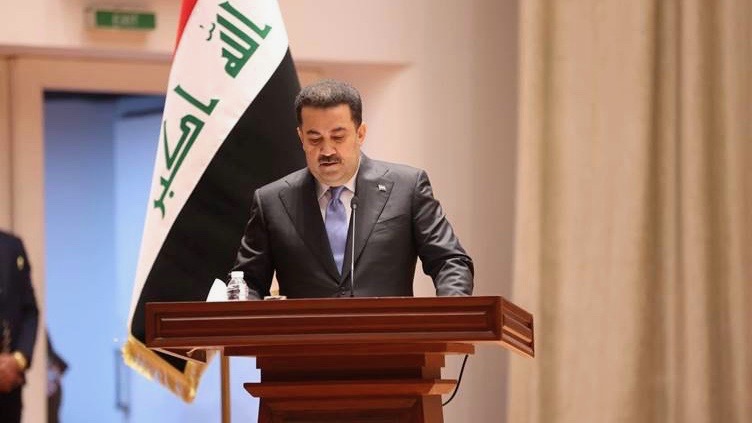 Iraqi parliament approves Mohammad al-Sudani as country’s new prime minister
Iraqi parliament approves Mohammad al-Sudani as country’s new prime minister
The appointment of al-Sudani is expected to end three years of political uncertainty in Iraq following the nationwide popular protests that broke out in October 2019, forcing the then elected government to resign
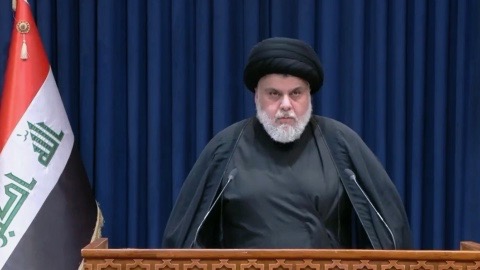 Muqtada al-Sadr demands dissolution of Iraqi parliament, fresh elections
Muqtada al-Sadr demands dissolution of Iraqi parliament, fresh elections
In a speech on August 3, Sadr asked his supporters to continue their sit-in inside the Iraqi parliament building and rejected calls for dialogue issued by Prime Minister Mustafa al-Kadhimi
 Moqtada al-Sadr’s supporters go on indefinite sit-in inside Iraqi parliament
Moqtada al-Sadr’s supporters go on indefinite sit-in inside Iraqi parliament
While asking the demonstrators to maintain peace, Moqtada al-Sadr called the sit-in a “golden opportunity” to “fundamentally change the political system and the constitution” of the country
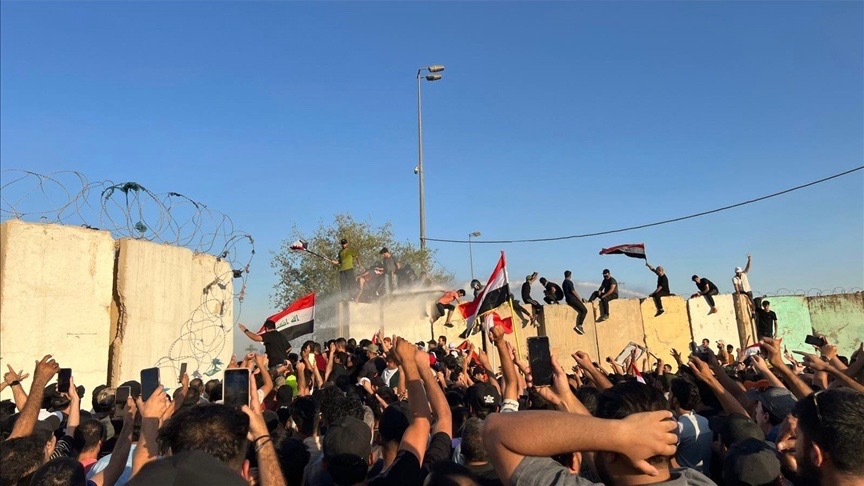 Protesters storm Iraqi parliament, oppose nomination of Mohammad Shia al-Sudani as PM
Protesters storm Iraqi parliament, oppose nomination of Mohammad Shia al-Sudani as PM
The protesters were supporters of Muqtada al-Sadr, whose party members resigned from the parliament earlier this year after failing to win enough support to form a national majority government
 Sadrist MPs resign from Iraqi parliament after failing to form majority
Sadrist MPs resign from Iraqi parliament after failing to form majority
Muqtada al-Sadr announced the dissolution of his Saving the Homeland coalition with the Sovereign Alliance (al-Siyada) and the Kurdish Democratic Party (KDP)
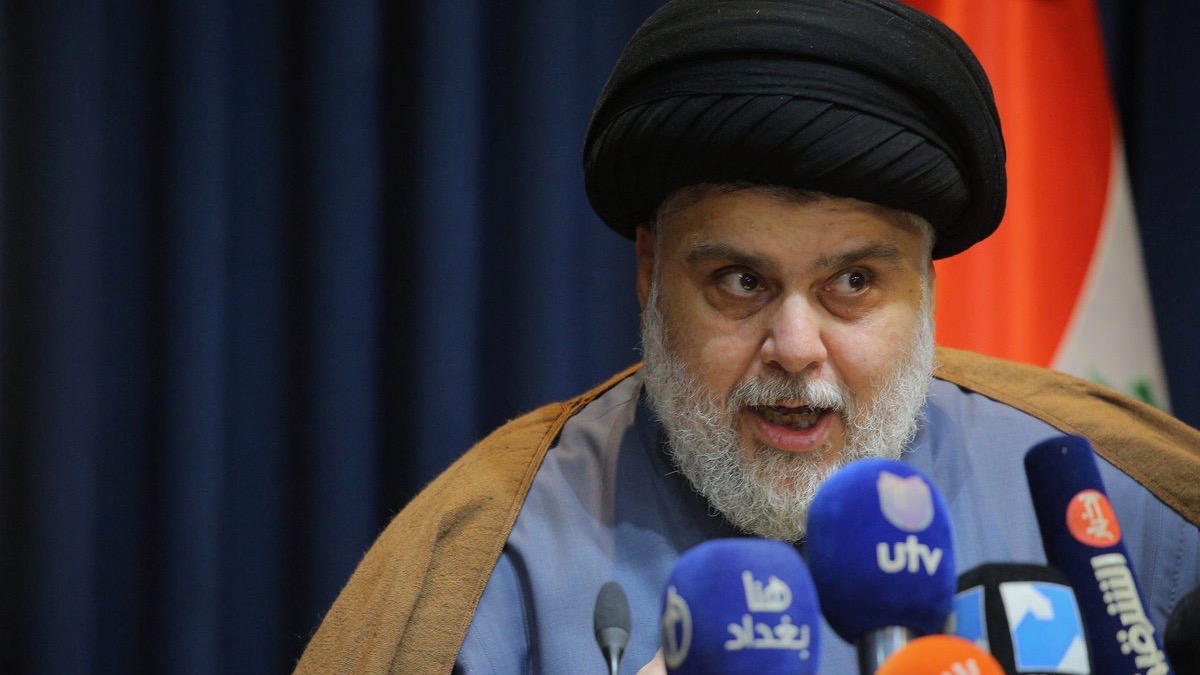 Conflicting approaches delay government formation in Iraq
Conflicting approaches delay government formation in Iraq
Muqtada al-Sadr, who won the maximum number of seats in the October elections, is determined to go against the general practice of a consensus government and wants to form a government based on political majority, claiming that it will establish accountability
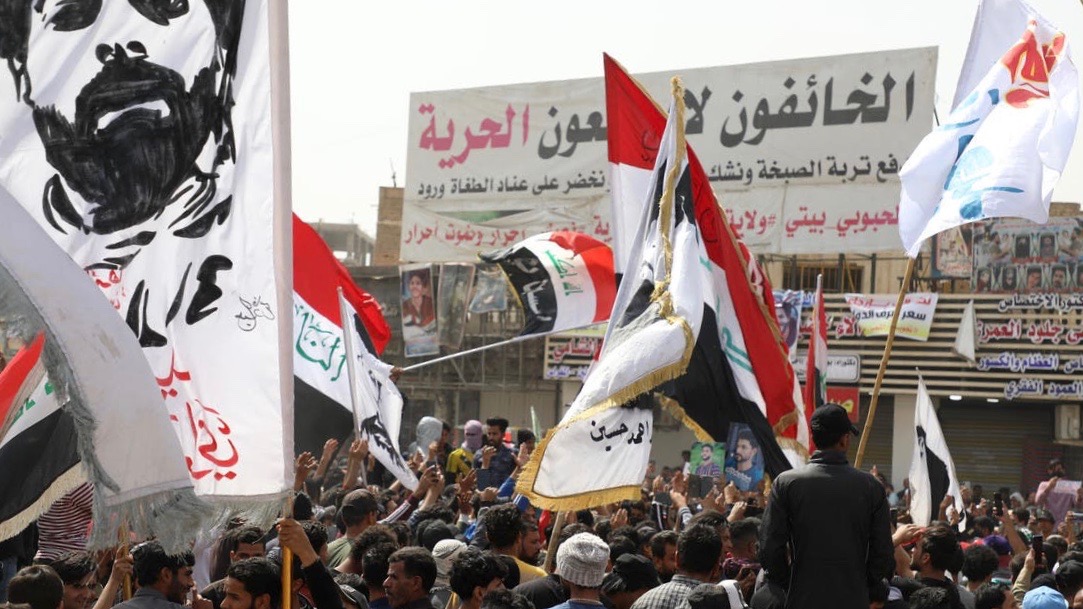 Protests mount against rising food prices in southern Iraq
Protests mount against rising food prices in southern Iraq
Protesters also rallied against traders, accusing them of artificially raising prices and overcharging customers for basic food items and other essential commodities
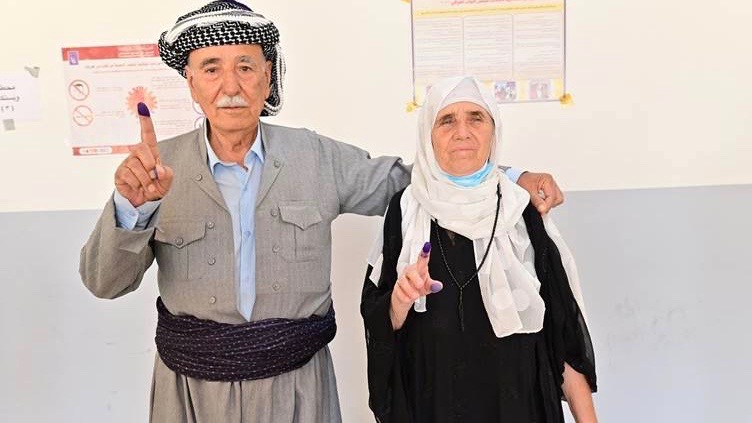 Muqtada al-Sadr-led alliance set to emerge as single largest force in Iraqi parliament
Muqtada al-Sadr-led alliance set to emerge as single largest force in Iraqi parliament
The fifth elections since the 2003 US-led invasion of the country saw the lowest voter turnout (41%), amid growing discontent with the political system due to widespread corruption, inefficiency and government apathy
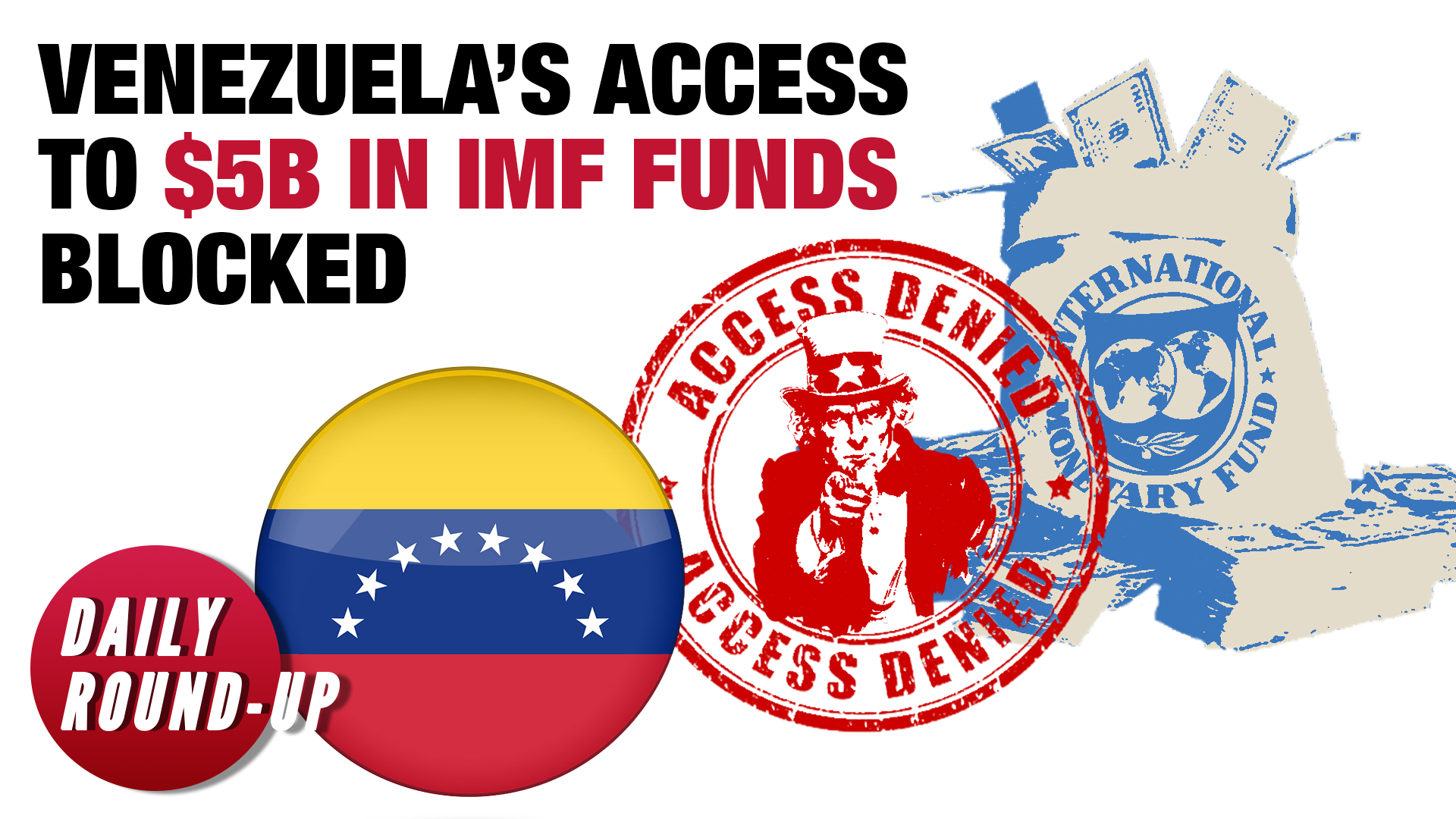 Venezuela condemns U.S. veto blocking access to IMF’s COVID-19 funds and other stories
Venezuela condemns U.S. veto blocking access to IMF’s COVID-19 funds and other stories
Today we look restrictions on Venezuela’s access to the IMF’s Special Drawing Rights funds, the upcoming parliamentary elections in Iraq, and more
 Why are Iraq’s communists boycotting the upcoming parliamentary elections
Why are Iraq’s communists boycotting the upcoming parliamentary elections
The Iraqi Communist Party, which was part of the leading alliance in the last elections in 2018, announced in July that it will not participate in the upcoming national elections in October due to the lack of a conducive political atmosphere
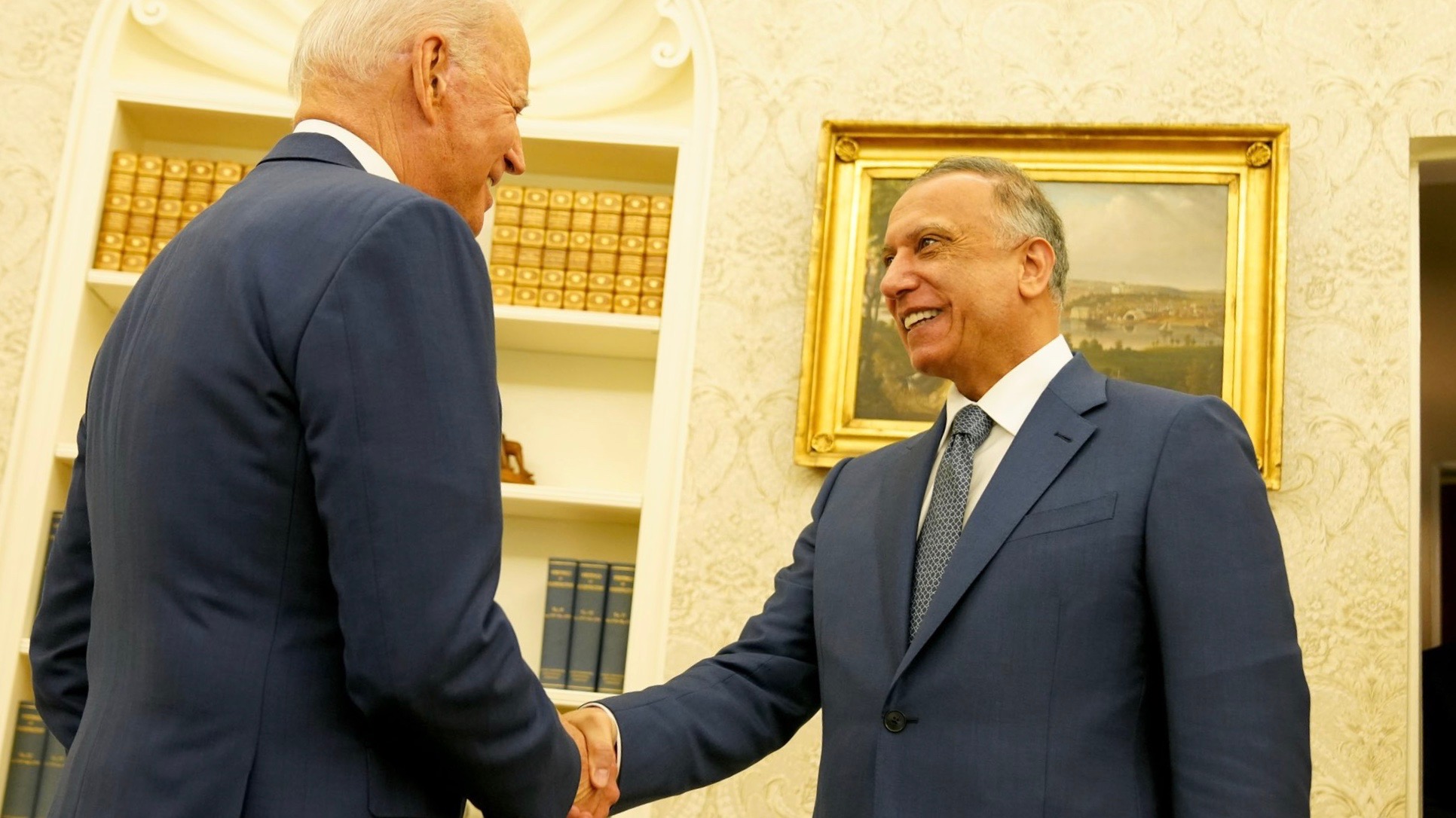 All US combat troops to withdraw from Iraq by end of this year
All US combat troops to withdraw from Iraq by end of this year
The opposition in Iraq has said the decision does not go far enough as the parliament had passed a resolution calling for the complete withdrawal of foreign troops from the country


